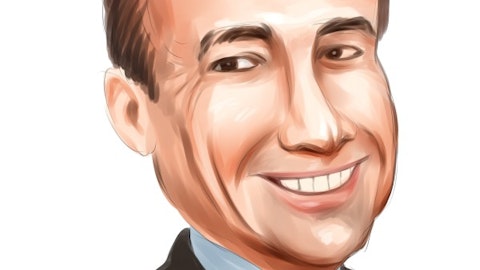Ken Fisher, the founder of Fisher Asset Management, is a Forbes portfolio strategy columnist, a New York Times best-selling author, and an investment guru. In early February, Fisher and the Investment Policy Committee of his firm released their forecast for the stock market and global macro-economy for the year ahead. According to Fisher, the growing corporate revenues and profits and attractive stock valuations are likely to continue in 2012. Global economy is also likely to continue reaching new highs in the year ahead. Fisher seems to be optimistic about the market. We agree with him. We think dividend stocks will outperform bonds in the next couple of years. In this article, we are going to take a closer look at a few dividend stock picks of Fisher. All companies have at least 3% dividend yield.

| Company | Dividend Yield | Value (*1000) |
| Johnson & Johnson (JNJ) | 3.54% | 668403 |
| Abbott Laboratories (ABT) | 3.62% | 523293 |
| GlaxoSmithKline plc (GSK) | 5.11% | 515817 |
| Pfizer Inc (PFE) | 4.14% | 471268 |
| Intel Corporation (INTC) | 3.16% | 463461 |
| Sanofi (SNY) | 4.75% | 432370 |
Johnson & Johnson (JNJ) is the largest dividend position in Fisher’s latest 13F portfolio. At the end of last year, Fisher had $668 million invested in this position. The stock was also quite popular among hedge funds. At the end of last year, there were 59 hedge funds with JNJ positions in their 13F portfolios. Billionaire Warren Buffett’s Berkshire Hathaway had about $2 billion invested in JNJ (see Warren Buffett’s new stock picks).
We like JNJ too. It has a decent dividend yield of 3.54%, versus 2% for 10-year Treasury bonds. The company also has an impressive record of increasing its dividend payouts. It has been raising its dividend for 49 consecutive years. We think JNJ will continue elevating its dividends in the future. Its current payout ratio is 64% and its earnings are expected to grow at about 6% per year. The company’s stable businesses with low exposure to market risk also indicate that it has the ability to maintain or even increase its dividend payments. JNJ’s products are almost independent of economic cycles. Its diversified portfolio of products, including medical devices, drugs, and consumer products, also largely reduces the overall risk it is exposed to. JNJ also looks attractive when it comes to valuation. Its forward P/E ratio is 11.85, versus 16.04 for the average of pharmaceutical stocks. We think JNJ is an attractive dividend growth stock for long-term investors.
One of the major competitors of JNJ is Abbott Laboratories (ABT). Fisher is bullish about ABT as well. At the end of last year, Fisher had $523 million invested in ABT. ABT was also quite popular among hedge funds tracked by us. At the end of the third quarter last year, there were 37 hedge funds reported to own ABT in their 13F portfolios. For instance, Ric Dillon’s Diamond Hill Capital and Bill Miller’s Legg Mason Capital Management both had over $100 million invested in this stock. Jim Simons’ Renaissance Technologies also had $11 million invested in ABT at the end of last year. Similar to JNJ, ABT also has a decent dividend yield of 3.62% and it has been raising its dividend payouts for 39 consecutive years. We are also optimistic about the company’s dividend growth in the future. ABT’s current payout ratio is 62% and its earnings are expected to grow at 7.51% annually. ABT’s forward P/E ratio of 10.55 is also lower than the 16.04 for industry average. Moreover, the company is planning to split up itself by spinning off its research-based pharmaceutical business. The spinoff is expected to be completed at the end of this year. We think the planned spin-off will lead to higher valuations for each company and investors will be benefit from that.
Most of Fisher’s dividend stock picks are in the pharmaceuticals industry. GlaxoSmithKline Plc (GSK), Sanofi (SNY), Pfizer Inc (PFE), and Intel Corporation (INTC) are among his other large bets. Pfizer and Sanofi are the two most popular healthcare stocks among hedge funds (see the 10 most popular stocks). We think the market undervalues this industry because of concerns about patent expirations. They are trading at historically low price multiples and we actually expect healthcare spending grow more than expected as Obama’s health reform kicks in. SNY and PFE have forward P/E ratios of below 9. Their expected growth rates are also very low so they are great options for contrarian investors.





